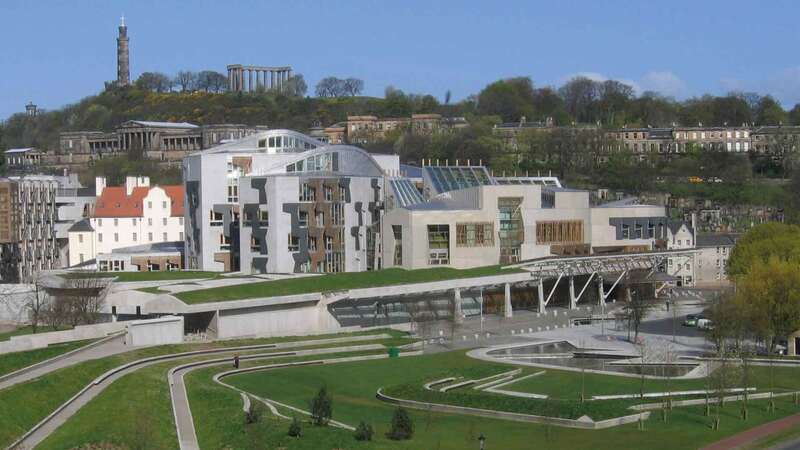You are viewing your 1 free article this month. Login to read more articles.
'Strong publishing' boosts Scotland's market
With the annual Publishing Scotland conference taking place this week, Scotland's publishers and booksellers say they are “thrilled” that the Scottish market has achieved growth for the second year in a row, with 2016 value sales increasing 4.3% year-on-year via Nielsen BookScan.
The strength of the Scottish market in 2016 has been attributed to "strong publishing" and a couple of stand-out hits including the Man Booker shortlisted His Bloody Project by Graeme McRae Burnet (Contraband) and Wainwright Prize-winning The Outrun by Amy Liptrot (Canongate).
Spurred on by the effects of the Scottish Independent Referendum in 2014 and buoyed by the current political climate concerning Brexit and the election of president Donald Trump, many in the trade have also noticed increased consumer engagement with political books and visits to independent bookshops.
Angie Crawford, Scottish book buyer at Waterstones, said that the success of His Bloody Project, which performed “remarkably well”, made "all of Scotland very proud". She added that Waterstones had sold a special gift version which helped sales. She also lauded the success of The Outrun and general “strong publishing” in 2016.
His Bloody Project sold 110,163 copies in paperback and The Outrun has sold 45,852 copies for £399,737 across all editions, according to Nielsen Bookscan.
Sara Hunt, publisher of Saraband (whose imprint Contrabrand published His Bloody Project) said it was “absolutely fantastic” to hear about the Scottish trade’s support for the book.
"This year, His Bloody Project got people so excited in Scotland and in particular booksellers really got behind it", she said. "It's really good news to hear that people are happy about its success".
Speaking about the market in general, Hunt added that bookselling is "looking more buoyant" at the moment and that there has been "real engagement" with books following the Scottish referendum.
Marie Moser of the Edinburgh Bookshop agreed, adding that that the book-buying public seem to be feeling more informed and interested in political books following a "slight hangover" from the independence referendum, saying that the referendum achieved 89% of electorate turnout and that level of political engagement has “spilled over” into book buying.
"There's been a slight hangover from the political activity around the referendum," she said. "There's a lot more engaged thinking about the world. People don’t just switch back off [after engaging in politics], and it’s not just politics books that they’re interested in. Indie bookshops become a place where issues are discussed. I think people see us as places where you can come and vent and places where people can discuss these things.”
She added: “After Brexit and Trump a lot of people came in [to my shop] to talk about it. [Indie bookshops] have become like old fashioned coffee shops, where people can discuss things.”
Discussing how consumer confidence will be affected when Article 50 is triggered, Moser said that while she did not think consumer confidence would be a problem for book sales, she thought that a hit to disposable income might have an impact on sales.
"That being said", she added, “Times could get tougher. I’d rather be selling this than things that cost £600 or £6,000. I don’t think we should be so worried; we're better situated than a lot of other small businesses. Books are amazingly cheap for what they are and we’re in quite a strong space."
Adrian Searle, publisher at Freight Books, added that the impact of Brexit would not be felt “immediately”, saying that the “key thing” that Brexit represents is “opportunity lost rather than direct intervention into the market”.
“It’s harder to quantify”, he said. “It’s more about affecting growth than an impact on consumer confidence. The impact will be on long-term growth rather than short-term sharp shocks. Despite political uncertainty, the UK economy seems to be in fine shape. The stock market is strong and that always filters down to the consumer’s pocket.”
Gavin MacDougall, director of Luath Press, added that the recent reports of increased sales of George Orwell's 1984 (Signet) and other political books is “very encouraging”.
He said that the bestselling book for the press last year was EU Referendum: A Guide for Voters which has sold 5,359 copies in total - 15% of which were sold in the week before the referendum (836 copies), according to Nielsen Bookscan.
“We were expecting to sell about 800/900 copies. It’s encouraging that there appears to be a hunger for enlightening political books.”
January 2017 has seen a somewhat wobbly start to the year, with the Scottish print book market down 5.7% in volume and 4% in value for 2017 so far. However, publishers say they are not worried about the "slight lull" and are optimistic that 2017 will be a strong year.
Searle said: “We don’t publish in January – people aren’t buying. January is a write-off for us; it’s an insignificant month and we don’t pay huge attention to it. We really focus on February to June.”
MacDougall agreed saying that January was a “comparatively quiet month” for Luath Press.
Crawford added that she wasn’t surprised by the “slight lull”, citing the rescheduling of highly anticipated crime books. “Good crime usually comes in January but this year, Stuart McBride and Chris Brookmyre coming later in the year, and there's a lot of anticipation for those books”, she said.
The Scottish Annual Book Trade Conference takes place in Edinburgh tomorrow (22nd February).


















